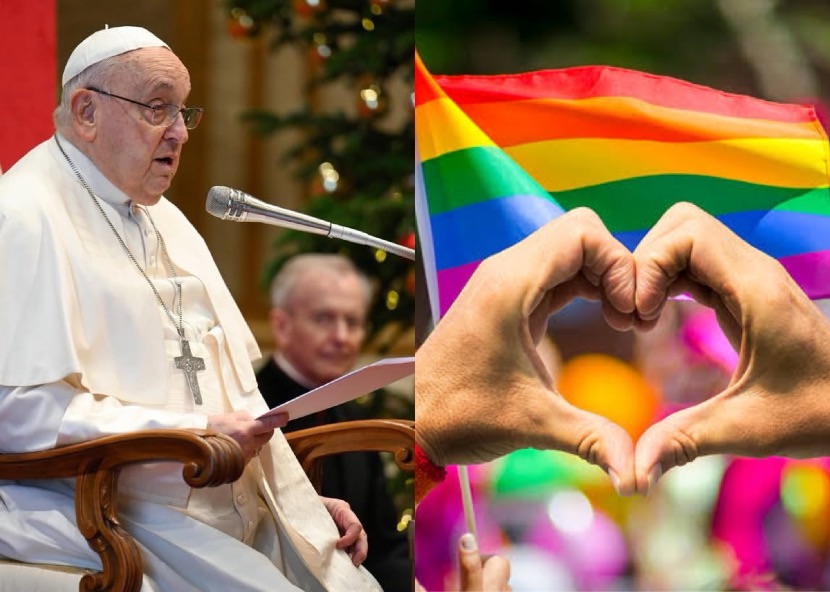NEWS
BREAKING: Pope Francis Shatters Long-Held Barriers, Supports LGBTQ+, Allowing Gay Men to Become Priests In A Historic Shift in Catholicism—But Only Under the Strict Condition of Lifelong Celibacy

Pope Francis Opens the Priesthood to Gay Men: A Historic Step with a Clear Caveat
In a groundbreaking decision that signals a shift within the Catholic Church, Pope Francis and the Vatican have announced that gay men may become priests, provided they commit to a life of celibacy. This move, while emphasizing the Church’s traditional teachings on celibacy, represents a significant moment in the ongoing dialogue about inclusivity and sexuality within the Catholic faith.

The announcement comes amid years of debate over the Church’s stance on LGBTQ+ individuals and their role in the faith community. Pope Francis, known for his more progressive approach compared to his predecessors, has often emphasized the need for compassion, acceptance, and understanding. His famous remark, “Who am I to judge?” regarding gay individuals seeking God, set the tone for this transformative decision.
A Conditional Welcome
The Vatican’s decision does not alter its long-standing doctrine on celibacy, which applies to all priests, regardless of sexual orientation. Gay men who wish to enter the priesthood must pledge to remain celibate, refraining from any sexual activity, as is required of all clergy. This rule underscores the Church’s belief that priests must dedicate their lives fully to their vocation, free from the commitments of romantic or sexual relationships.
While this policy maintains the Church’s traditional teachings on sexuality, it opens a door that was previously thought to be firmly closed. Historically, gay men have often faced exclusion or silent discrimination within seminaries, even if they met all other requirements for priesthood. This decision signals a willingness to acknowledge their presence and their potential to serve the Church while remaining faithful to its teachings.
A Balancing Act for the Church
This announcement reflects the delicate balance Pope Francis has sought to strike between upholding Catholic doctrine and embracing a more inclusive vision of the Church. While the Church still officially teaches that homosexual acts are sinful, it also stresses the dignity of every individual, regardless of their sexual orientation.
Critics from conservative factions within the Church are likely to see this move as a dangerous step toward liberalization. Some fear that allowing openly gay men into the priesthood, even under strict celibacy requirements, could lead to further erosion of traditional Church teachings.
On the other hand, progressive voices see this as a long-overdue acknowledgment of the contributions gay priests have already made in the shadows. They argue that this step could help foster greater transparency and reduce the stigma surrounding LGBTQ+ individuals in the Church.
A Step Toward Inclusivity or a Tightrope Act?
For Pope Francis, this decision aligns with his broader vision of a Church that is “a home for all.” Yet, the celibacy condition remains a critical point of tension. Critics from LGBTQ+ advocacy groups have expressed concern that the celibacy requirement disproportionately impacts gay priests, framing their sexual orientation as something that must be entirely denied.
Still, the decision represents progress for many who believe the Church must evolve to remain relevant in an increasingly inclusive world. It also provides a glimmer of hope for LGBTQ+ Catholics who have long felt alienated from their faith.
What’s Next for the Church?
As the Church navigates this complex and historic decision, the eyes of Catholics and non-Catholics alike will be watching closely. Will this lead to a more inclusive priesthood that reflects the diversity of the faithful? Or will the backlash from conservative factions stifle any further progress?
Pope Francis, as he has done throughout his papacy, appears to be walking a fine line—one that balances tradition with a call to love and embrace all people. Only time will tell how this decision will reshape the Catholic Church and its relationship with LGBTQ+ individuals worldwide.












